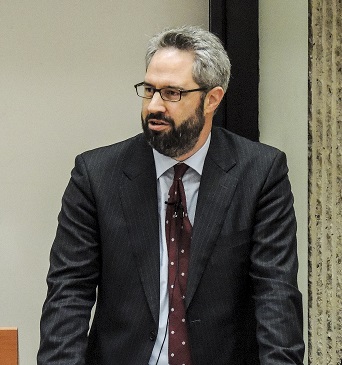
Paul Babie is Associate Professor and Reader, Director, Research Unit for the Study of Society, Law and Religion (RUSSLR), Associate Dean of Law (Research), Adelaide Law School, and Associate Dean (Research), Faculty of the Professions, at The University of Adelaide. He holds a BA in sociology and political science from the University of Calgary, a BThSt from Flinders University, a LLB from the University of Alberta, a LLM from the University of Melbourne, and a DPhil in law from the University of Oxford. His primary research areas are legal theory, especially the nature and concept of property, and the relationship between law and theology; he has published widely in both fields. He is a Barrister and Solicitor (Inactive) of the Court of Queen’s Bench of Alberta (Canada), and An Associate Member and a Member of the Property Law Committee of the Law Society of South Australia. He teaches property law, property theory, law and religion, and Roman law.
Richard Moon is a Professor in the Faculty of Law, University of Windsor. He has written extensively about freedom of expression and freedom of religion, publishing more than 50 articles and book chapters in Canada and abroad. He is also the author of Freedom of Conscience and Religion (Irwin Law, 2014) and The Constitutional Protection of Freedom of Expression (University of Toronto Press, 2000), editor of Law and Religious Pluralism in Canada (UBC Press, 2008), a contributing editor to Canadian Constitutional Law (Emond Montgomery Press, 2010), and co-editor of Religion and the Exercise of Public Authority (Hart Publications, forthcoming).
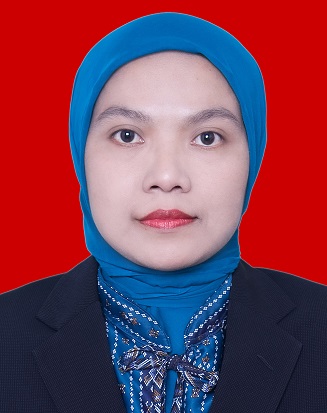
CEKLI SETYA PRATIWI is currently worked as a lecturer of Law Faculty Muhammadiyah University of Malang (UMM) – Indonesia. She obtained a Law degree from Law Faculty Universitas Brawijaya (1998), and an LL.M. from Utrecht University (2006). She was elected and worked as a Vice Dean of Student Affair in 2009-2013. Her interest research area is on the strengthening of implementation of justice through public examination of judges’ verdict. During the period of 2006 and 2011 she became the coordinator on a research project about Public Examination of Judicial Verdicts on some cases of corruption, illegal fishing, illegal logging, illegal using of drugs and narcotic in several Criminals Courts in East Java Provinces. This was supported and published by National Judicial Commission of Indonesia Republic. Recently, she is focusing on a research about the Harmonization and Internalizations of International Human Rights Law into domestic and local law funded by Directorate of High Education. Her experiences related to the issue of Freedom of Religion and Belief has been acknowledged as she was invited as an Indonesia delegations in 2009 for A Religion and Society: A Dialogue and visited several Religion Organizations in Virginia, Washington DC dan India Polish (USA - 2007). She also actively participates in many occasions such as to be a speaker for an International Conference and training program in area of Human Rights Law in Bali (2007), in Jakarta (2008), in Provo (2012), in Bandung – West Java (2013), in Palangkaraya – Borneo Island (2013), in Ternate - North Moluccas Island (2014). In 2012-2014 she actively involve as a lecturer in a training project on Sharia and Human Rights: A Background and Core Contemporary Issues in Indonesia managed by PUSAM – UMM funded by the Oslo Coalition - Norwegian Center For Human Rights (NCHR) and ICLRS – BYU.
Jeroen Temperman is Associate Professor of Public International Law at the Erasmus University Rotterdam, lecturing in international human rights law. In 2010 he was appointed EUR Fellow, enabling him to carry out a four-year research project entitled “The Prohibition of Advocacy of Religious Hatred in International and Domestic Law.” He is also the editor-in-chief of Religion & Human Rights: An International Journal. His research is chiefly focused on freedom of religion or belief, the right to education, freedom of expression and extreme speech, religion–state relationships, and equality. He has authored, co-authored and edited several books on international human rights law, including State–Religion Relationships and Human Rights Law (2010); Human Rights, co-authored with Kristin Henrard (2011); The Lautsi Papers: Multidisciplinary Reflections on Religious Symbols in the Public School Classroom (2012); and Het sociale gezicht van Europa: een mensenrechtenperspectief (a book on social rights within the European Union), co-authored with Rob Buitenweg and Kathalijne Buitenweg (2013). Other key publications include articles on different aspects of human rights law in Human Rights Quarterly, Oxford Journal on Law and Religion, Netherlands Quarterly on Human Rights, Annuaire Droit et Religion, and Religion & Human Rights. In 2014 he was awarded a Fulbright Scholarship, facilitating a visiting professorship at Washington College of Law, American University, Washington D.C.
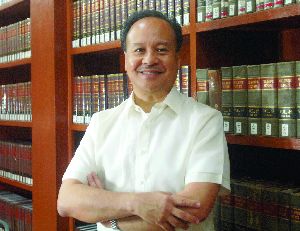
Raul Pangalangan is a Professor of Law at the University of the Philippines, where he teaches Constitutional Law and Public International Law and where he served as Law Dean. He is currently the Publisher of the Philippine Daily Inquirer, the nation’s most influential newspaper. He studied at the Harvard Law School, where he won the Laylin Prize for best thesis in international law and the Sumner Prize for best dissertation relating to international peace. He was most recently an Asian Public Intellectual Fellow.
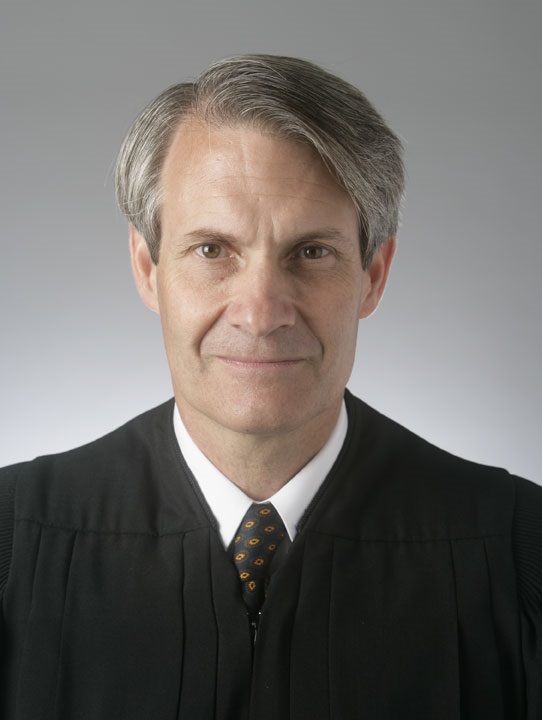
Thomas B. Griffith was appointed to the United States Court of Appeals for the D.C. Circuit in 2005. At the time of his appointment, Judge Griffith was the General Counsel of Brigham Young University where he led a coalition of religious colleges and universities working to preserve their unique role in American higher education. Earlier in his career Judge Griffith was a partner in a Washington, DC law firm. He also served as Senate Legal Counsel, the chief legal officer of the United States Senate. In that capacity, he advised the Senate leadership and its committees on various matters, including the impeachment trial of President Clinton. Long active in rule of law initiatives in the former communist states of Eastern Europe and Eurasia, Judge Griffith also teaches at the law schools at Stanford and Brigham Young University.
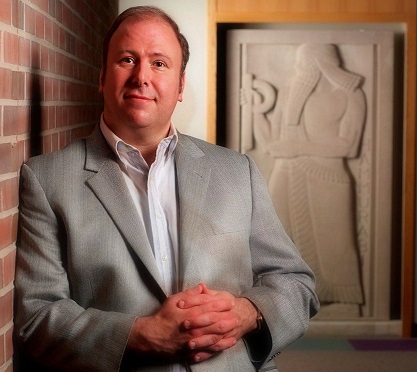
Frank S. Ravitch is Professor of Law and the Walter H. Stowers Chair in Law and Religion at the Michigan State University College of Law, and Director of the Kyoto, Japan Summer Program. He is the author of several books: Marketing Creation: The Law and Intelligent Design (Cambridge Univ. Press, 2012); Masters of Illusion: The Supreme Court and the Religion Clauses (NYU Press 2007); Law and Religion, A Reader: Cases, Concepts, and Theory, 2nd Ed. (West 2008) (First Ed. 2004) (3rd Ed. In progress, expected 2015); Employment Discrimination Law (Prentice Hall 2005) (with Pamela Sumners and Janis McDonald); and School Prayer and Discrimination: The Civil Rights of Religious Minorities and Dissenters (Northeastern University Press, 1999 & paperback edition 2001). Professor Ravitch has also published a number of law review articles addressing U.S. and Japanese constitutional law, law & religion, and civil rights law in leading journals. Moreover, he has written a number of amicus briefs addressing constitutional issues to the United States Supreme Court.
In 2001, Professor Ravitch was named a Fulbright Scholar and served on the Faculty of Law at Doshisha University in Kyoto, Japan. Currently, he directs the Michigan State University College of Law Japan Summer program. Professor Ravitch regularly serves as an expert for print and broadcast media, and speaks on topics related to U.S. Constitutional Law, Japanese Law, and Israeli Law to a wide range of national, international and local organizations. He speaks English, Japanese, and Hebrew.
